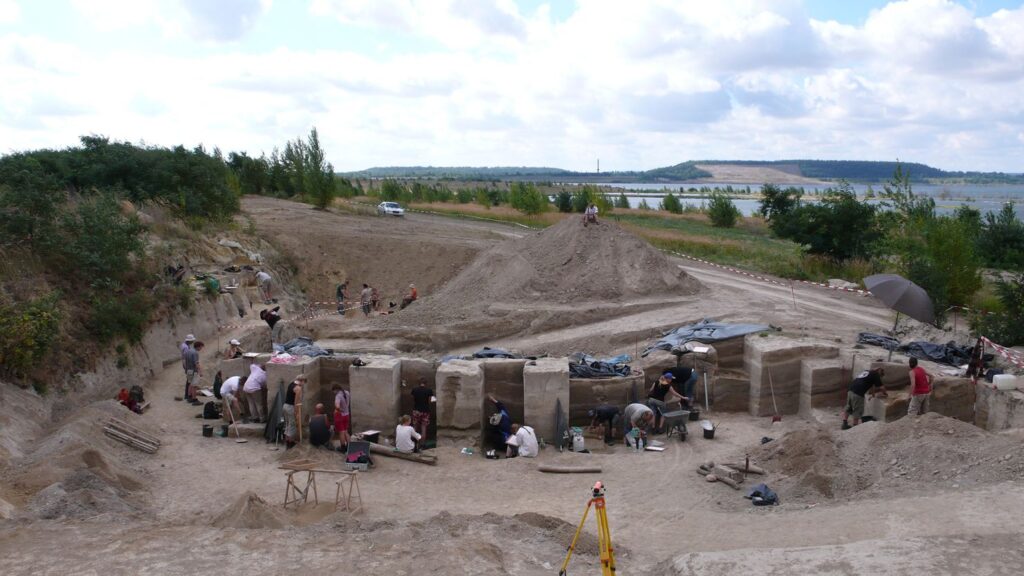Stone Age humans living by a lake in what’s now Germany systematically processed animal carcasses for fatty nutrients — essentially running what scientists describe as a “fat factory” to boil bones on a vast scale, according to new research.
Archaeologists uncovered the factory by analyzing some 120,000 bone fragments and 16,000 flint tools unearthed over several years at a site known as Neumark-Nord, south of the city of Halle, they reported in a study published Wednesday in the journal Science Advances. Excavators found the artifacts alongside evidence of fire use.
The researchers believe that Neanderthals, an extinct species of human known to have lived in that area as far back as 125,000 years ago, smashed the marrow-rich bones into fragments with stone hammers, then boiled them for several hours to extract the fat, which floats to the surface and can be skimmed off upon cooling.
Since this feat would have involved planning hunts, transporting and storing carcasses beyond immediate food needs, and rendering the fat in an area designated specially for the task, the finding helps paint a picture of the group’s organization, strategy and deeply honed survival skills.
“This attitude that Neanderthals were dumb — this is another data point that proves otherwise,” said Wil Roebroeks, study coauthor and professor of Paleolithic archaeology at Leiden University in the Netherlands.
Continue reading the complete article on the original source



